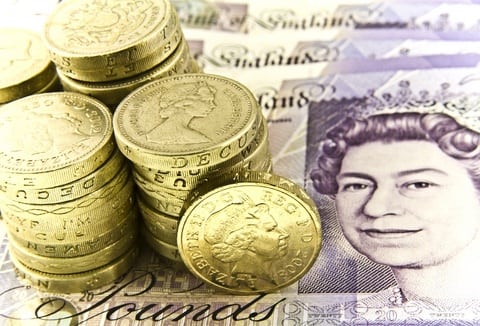Expats saw their spending power slump as the Bank of England decided to hold interest rates at a record low of 0.5% for yet another month.
The Pound tumbled to $1.44 on London trading earlier this week – the lowest since May 2010.
For expats, this means the pound in the pocket buys less and rates on savings are unlikely to pick up.
The value has been dragged down by the topsy-turvy management of the Chinese yuan and a corresponding fall in the Canadian and Australian dollars.
Foreign exchange experts had worked under the logic that last month’s hike in US rate rises from 0.25% to 0.5% would drag UK interest rates and the pound up as well.
However, this improvement has failed to materialise as Bank of England rate fixers on the monetary policy committee voted 8-1 to peg the rate again – which has settled at 0.5% since March 2009.
Switching to a QROPS may help pensioners
While these economic moves are improving the spending power of working expats with contracts paid in US dollars, for pensioner expats picking up their payments in pounds, the picture is not so rosy.
One option for expats with UK pensions is to consider shifting their funds into a Qualifying Recognised Overseas Pension Scheme (QROPS).
QROPS can pay pension benefits in a wide range of popular currencies.
US dollars are certainly one option, but having pensions paid into banks in a local currency for those that have settled permanently is another.
How this affects retirement finances depends on where the expat lives and how the local currency performs against the pound and US dollar.
QROPS also allow expats to hedge against foreign exchange jolts by doing away with the need to hold sterling pension payments offshore pending favourable currency movements.
Currency movement concerns
Another hedge against foreign exchange movements is tapping into a money transfer service that offers fixed rates – but the chance is that currency movements can undermine the rate.
Concerns over interest rates and currency values follow British Chancellor George Osborne’s recent warnings that although the British economy was performing well, the recovery faces a battering from external risks.
Volatility in the Chinese markets as the country moves from a manufacturing to consumer economy is the top worry.
“It’s not mission accomplished. The last 12 months were the worst for global growth since the downturn and a dangerous mix of threats to economic survival are lurking in the shadows,” he said.
“Britain is not immune from what happens overseas and we should not close our eyes to what may happen that will affect the hard work we are doing at home.”
